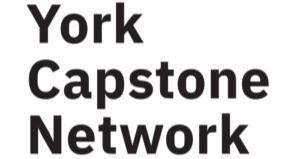Innovative Tech Consulting - Technology Strategy Group Fall 2025
Main contact
Timeline
-
October 6, 2025Experience start
-
December 1, 2025Experience end
Experience scope
Categories
Website development Mobile app development Software development UI design UX designSkills
information technology consulting ui/ux planning internet strategy technical consulting cyber security innovation software developmentTechnology Strategy Group (TSG) at the University of Virginia is a student-led organization that fosters innovation, collaboration, and professional development among its undergraduate members. The club’s main objectives are to offer real-world project experience, enhance technical skills, and build meaningful connections with industry professionals.
Beginning Fall 2025, interdisciplinary student teams from the University of Virginia’s Technology Strategy Club will partner with organizations to tackle open-ended technology challenges grounded in a consulting framework. Rather than executing a pre-determined backlog of development tasks, students will drive the full Systems Development Life Cycle; mapping your current state, envisioning a future state, performing gap and risk analyses, and recommending actionable roadmaps. Where appropriate, teams can build proof-of-concept prototypes or UX/UI mock-ups to validate their recommendations, but hands-on coding will complement (not replace) the strategic diagnostic work. By combining expertise in computer science, data analytics, business, and design, each team delivers a clear problem statement, evidence-based solutions, and prioritized next steps that create lasting value for your organization.
Company Requirements:
- Provide a project that meets the 8-week timeline, starting in October.
- Be available for a 30-minute virtual meeting with the club leads to discuss the project scope and assess if it aligns with the experience.
- Develop a learning plan in collaboration with the team leads at the start of the project.
- Have a staff of at least three members (start-up founders are encouraged to apply if all criteria are met).
- Appoint a supervisor to support the experience and fulfil program requirements.
- Designate a primary contact person available for weekly or bi-weekly meetings to address learners' questions and provide updates during the project.
- Provide an alternate contact for TSG leads and Riipen administrators.
- Offer an opportunity for students to present their work and receive feedback.
- Provide any relevant information or data required for the project.
Students
Deliverables will vary depending on the scope of the internship. However, these deliverables must be discussed and agreed upon prior to the start of the internship.
Project timeline
-
October 6, 2025Experience start
-
December 1, 2025Experience end
Project examples
Ideal projects invite interdisciplinary student teams to diagnose an organization’s current technology landscape, envision a future state, analyze gaps, and deliver actionable roadmaps (supplemented by optional prototypes) rather than simply executing pre-defined development tasks.
Some ideas include:
Digital Workflow Gap Analysis: An interdisciplinary student team will chart your existing workflow end-to-end, pinpoint bottlenecks, and present a concise action plan for automation-driven efficiency gains.
Customer Analytics Audit: The team will evaluate your current data sources and reporting practices, spotlight capability gaps, and recommend a streamlined dashboard strategy to deepen customer insight.
Cybersecurity Resilience Plan: Students will assess your security posture against industry frameworks, identify high-risk vulnerabilities, and outline a prioritized roadmap for strengthening cyber resilience.
Cloud Migration Feasibility Study: The team will inventory your on-prem workloads, compare costs and risks, and craft a phased migration plan that aligns with your operational goals.
Inclusive UX Redesign: Students will conduct an accessibility audit of your digital product, uncover user pain points, and deliver a prototype demonstrating a more inclusive, user-friendly experience.
Additional company criteria
Companies must answer the following questions to submit a match request to this experience:
Main contact
Timeline
-
October 6, 2025Experience start
-
December 1, 2025Experience end
